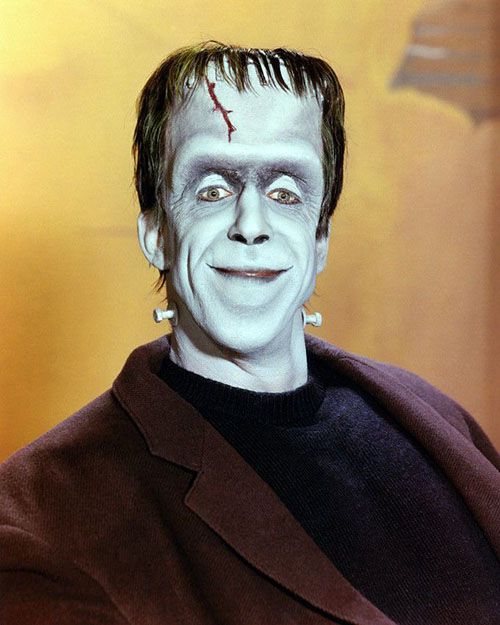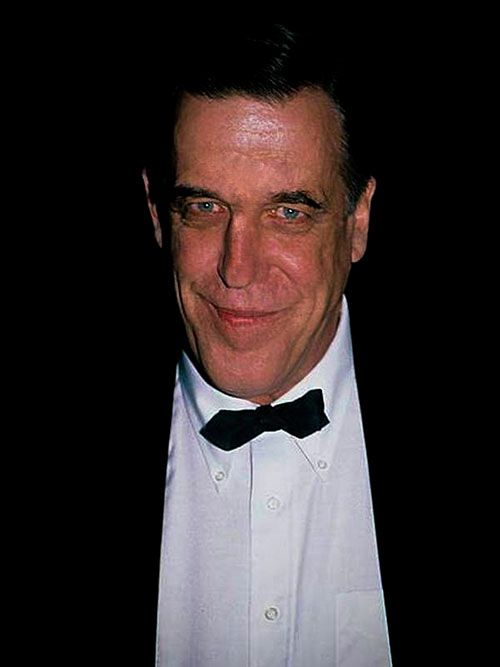
Herman Munster

Herman is a lovable, good-natured, and clumsy buffoon. Despite having been alive for centuries, he behaves rather childishly, often throwing temper tantrums, punctuated with thundering animal-like roaring. In spite of his childish behaviors, he is a caring father figure to his son Eddie and a loving, devoted husband to his wife Lily. He is very kind to everyone, but he is also very naive, often misunderstanding situations or falling for various schemes. He occasionally has problems recognizing when someone has malicious or dishonest intentions towards him. Most people, however, flee in terror on seeing Herman’s monstrous visage, which he always attributes to something else. In some instances, his presence has caused inanimate objects or artwork to come to life and flee in terror: such as a statue of Daniel Boone in a park, a stuffed gorilla in a museum, and a graffiti drawing of a face in a jail cell starting out smiling and the facial expression changes to terror.
Despite being of German origin and having been raised in England, Herman speaks with a cultured American accent. He does however read German newspapers, which is subtly shown in at least one episode: He is reading a paper, conversing about an unrelated topic, and as the camera gets close enough to his face, it can be seen for a fraction of a second that it is Die Zeit. In episode “My fair Munster”, he reads Die Welt. –Wikipedia

Frederick Hubbard Gwynne (July 10, 1926 – July 2, 1993) was an American actor, artist and author. Gwynne was best known for his roles in the 1960s sitcoms Car 54, Where Are You? and as Herman Munster in The Munsters, as well as his later roles in The Cotton Club, Pet Sematary and My Cousin Vinny.
Gwynne was 6 ft. 5 in. tall, an attribute that contributed to his being cast as Herman Munster, a goofy parody of Frankenstein’s monster, in the sitcom The Munsters. For his role he had to wear 40 or 50 lbs of padding, makeup, and 4-inch asphalt-spreader boots. His face was painted a bright violet because it captured the most light on the black-and-white film.
After his iconic role in The Munsters, he found himself typecast, unable to gain new cinema character roles for over two years. In 1969, he was cast as Jonathan Brewster in a television production of Arsenic and Old Lace. Gwynne then found success as a stage actor in regional state productions across the United States while maintaining a low Hollywood profile, before being rediscovered.
Fred Gwynne died of complications from pancreatic cancer, in the cigar room at his home in Taneytown, Maryland, on July 2, 1993, eight days short of his 67th birthday.He is buried at Sandy Mount United Methodist Church Cemetery in Finksburg, Maryland. –Wikipedia
